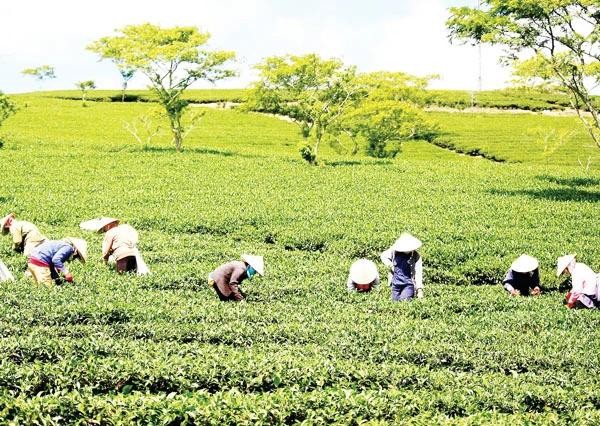Tea industry faces low price trap
The persistent issue of low export prices has rendered the Vietnamese tea industry vulnerable to intense international competition. The industry is facing low price trap.

To mitigate this challenge and elevate the value proposition of Vietnamese tea, experts and industry stakeholders have proposed strategies aimed at enhancing the value and brand of national tea.
Vietnam Tea Association Chairman Hoang Vinh Long exposed the vulnerability of Vietnamese tea exporters, who are easily swayed by immediate orders, neglecting crucial investments in quality and brand development. Chairman Long remarked that the global perception of the Vietnamese tea market is primarily as a source of inexpensive tea. He pointed out that this perception poses a significant challenge for Vietnam in its efforts to enhance tea exports to more discerning markets that demand higher quality.
Though Vietnam's tea export prices are regarded as low, they still exceed the global average tea price. This indicates that importers are primarily attracted to Vietnam for its competitive pricing rather than for high-quality tea products. Consequently, domestic tea producers are often compelled to sell their products at reduced prices, which hampers the income of tea growers and adversely impacts the competitiveness of the Vietnamese tea sector.
According to Deputy Director Nguyen Quoc Manh of the Department of Crop Production under the Ministry of Agriculture and Rural Development, Vietnam has achieved a significant volume of tea exports; however, the export value only reaches approximately 70 percent -75 percent of that of comparable tea-producing countries in the international market. This presents a considerable challenge for the domestic tea sector, as the majority of exported tea consists of basic product lines, lacking in variety and brand differentiation.
Deputy Director Nguyen Quoc Manh emphasized the importance of establishing safe tea cultivation areas, enhancing product quality, and meeting international standards such as VietGAP, GlobalGAP, and organic certifications as essential strategies for increasing value.
Talking about the quality assurance, Deputy Director Le Thanh Hoa of the Department of Quality, Processing and Market Development under the Ministry of Agriculture and Rural Development said that adherence to food safety standards is crucial for Vietnamese tea to penetrate demanding markets.
According to him, producers, organizations, and individuals involved in tea production must assume responsibility for the safety of their products to make sure that tea offerings comply with the technical standards and regulations set forth by the regulatory authorities.
To align with the stringent safety standards imposed by major import markets such as the EU and the US, which include rigorous pesticide and heavy metal residue limits, the Vietnamese tea industry must prioritize the implementation of robust production process controls and stringent chemical residue monitoring.








